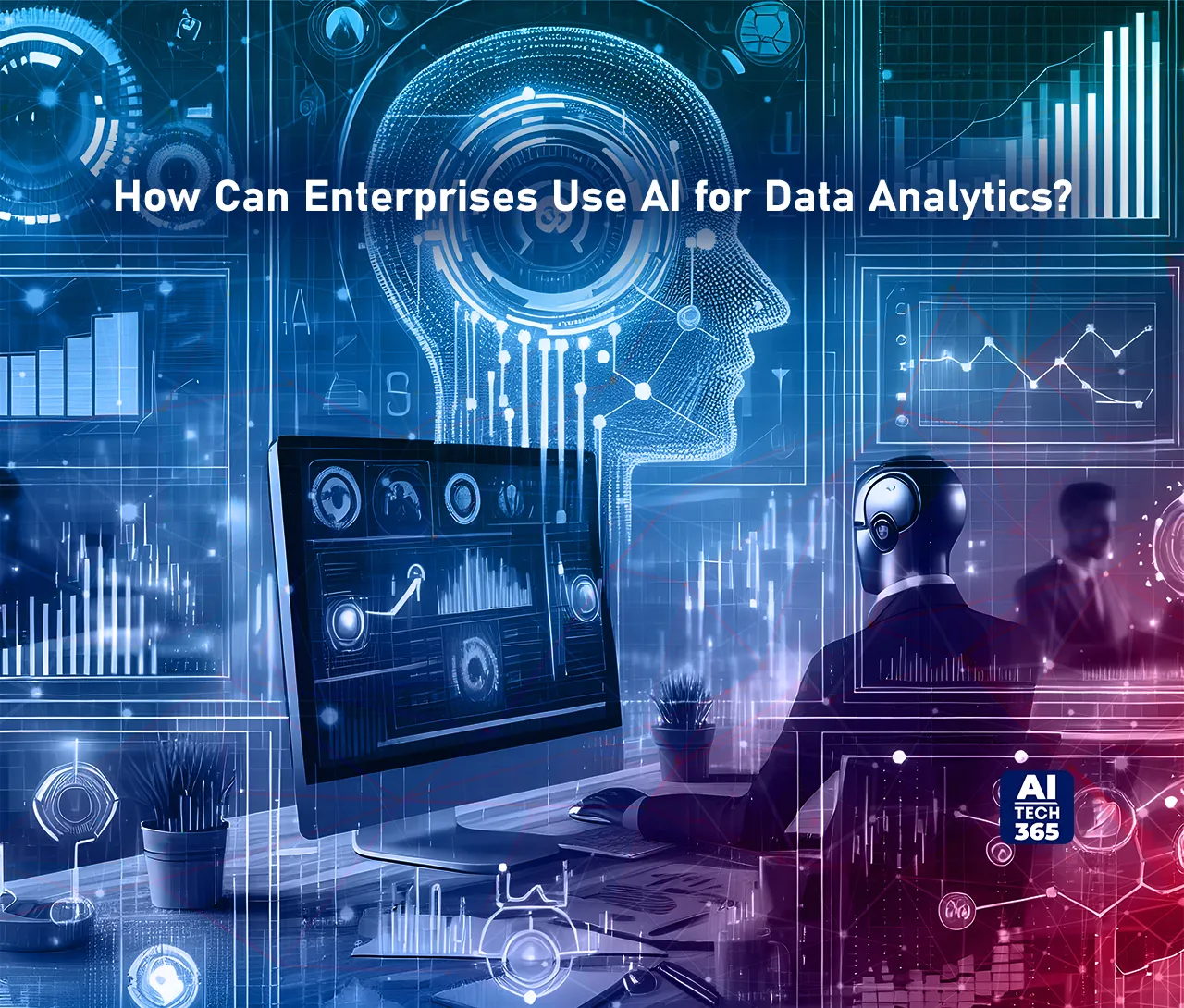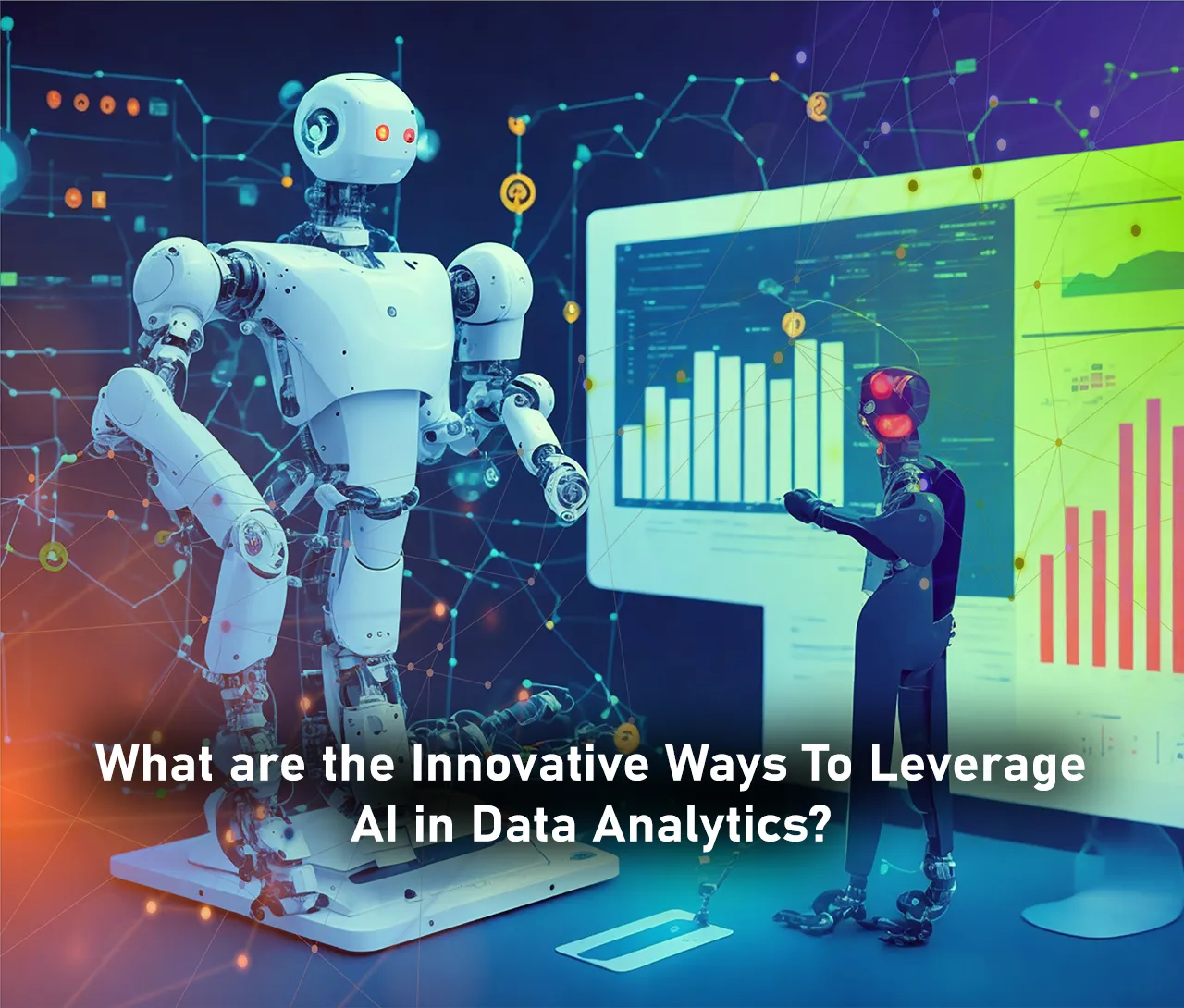Businesses of all sizes, types, and industries generate a large amount of data on a daily basis. These data sets have valuable insights that can help businesses enhance their business operations to reduce costs and improve customer experience. Organizations need to have the best strategies in place to analyze data sets from various data sources to have a holistic view of their business performance. Business leaders are exploring opportunities to integrate AI data analytics tools into their enterprise tech stack to gain actionable business intelligence from the data gathered from various sources.
In this blog, let us have a look at what AI data analytics is, how businesses can leverage AI for evaluating data, and its importance in today’s data-driven world.
What is AI Data Analytics?
The practice of leveraging artificial intelligence (AI) applications to evaluate huge data sets, and streamline and scale trends to discover valuable insights for data analysts is referred to as AI data analytics.
How Can Enterprises Use AI for Data Analytics?
The aim of AI analytics is to offer business intelligence by assisting, automating, and streamlining every phase of the data analysis lifecycle. AI-driven tools are effective in gathering information from various data sources and processing it for further analysis.
Data scientists can train and apply machine learning (ML) algorithms to have predictive analytics on prepared data sets. Data analysts can use this approach to interpret trends and valuable insights from the gathered information from various data sources to make informed decisions.
Why is AI in Data Analytics Important?
In order to have a better overview of why integrating AI in the enterprise tech stack is crucial for data analytics, let us have a look at a few benefits it offers for enterprises:
1. Quick Decision Making
Artificial intelligence has the capability to gather and process information more quickly and efficiently than a human. Hence, the actionable insights gained from the AI tools are quick and more accurate. Integrating AI data analytics assists organizations to make data-driven decisions and act on them more quickly.
The human brain does not have the capacity to remember all the commands or library syntaxes of various data analytics libraries. Taking the help of an AI assistant will help data scientists quickly explore these commands and recommend alternative techniques to the analysis.
2. Verification Of Facts
Integration of AI-powered tools in the tech stack helps data operations teams identify inconsistencies in large data sets more efficiently. For instance, if a particular analytics results are not according to the expectations, an AI assistant can assist in the investigation of the root cause. Furthermore, a few AI frameworks have the potential to detect mistakes or possible issues before they even occur.
3. Democratization Of Data
Data science that relies on AI technologies can democratize access to data. AI assistants with natural language processing (NLP) can help organizations evaluate huge data sets and gain valuable insights without skilled resources. It is an effective way to streamline the work for unskilled workers to get access to complex data sets without having the proper understanding of the technicalities related to data science.
4. Report Automation
Enterprises that integrate AI-powered tools can automate report creation and sharing. Rather than generating separate reports for every individual data analysis, AI platforms can create consolidated reports automatically and faster.
All employees have access to these automated reports to ensure the entire workforce is on the same page, irrespective of their location or department.
Also Read: How Enterprises are using AI in 2024? Benefits & Use Cases
What are the Innovative Ways To Leverage AI in Data Analytics?
Given below are a few strategies that businesses can consider for integrating AI into their data analytics:
1. Developing Codes and Rectifying Errors
Businesses can leverage AI for creating codes or debugging mistakes in data analysis. It is effective in complex tasks like visualization of huge datasets and developing machine learning algorithms.
If the development teams have drafted a complex code and are having challenges explaining the text, they can take the help of AI tools to comment on the code. This approach is beneficial for saving a significant amount of time on tedious documentation processes.
2. Describing Data Analysis & Insights
Leveraging AI in data analytics helps describe the insights and dive deeper into the large data sets, which is essential at times to extract true business insights. This functionality of AI can be beneficial for other purposes like exploring data analytics while encountering a new data set or database.
3. Generating Synthetic Data
Enterprises can leverage AI-powered applications in analytics to generate synthetic data.
Automated data imputation is another aspect where AI in data analytics can be beneficial. Automated imputation can assist in filling out datasets with missing data more efficiently and quickly.
4. Designing Tailor-Made Dashboards & In-Depth Reports
AI-powered tools can be leveraged to develop intuitive dashboards and reports that consolidate data from various sources in a single report. Users do not need to have prior experience in data visualization. They just need to select the data they need to visualize, and AI will automatically format the data in a preferred chart or graph accordingly.
Wrapping Up AI Data Analytics
Integrating AI-driven tools in the tech stack is essential to identify the potential bottlenecks in business operations and what are the best ways to overcome them. AI data analytics can offer organizations valuable insights that assist them in achieving their business goals quickly and efficiently without compromising on the quality of work. There are many businesses that have embraced AI tools to evaluate their data to gain actionable insights that help the enterprise grow.


